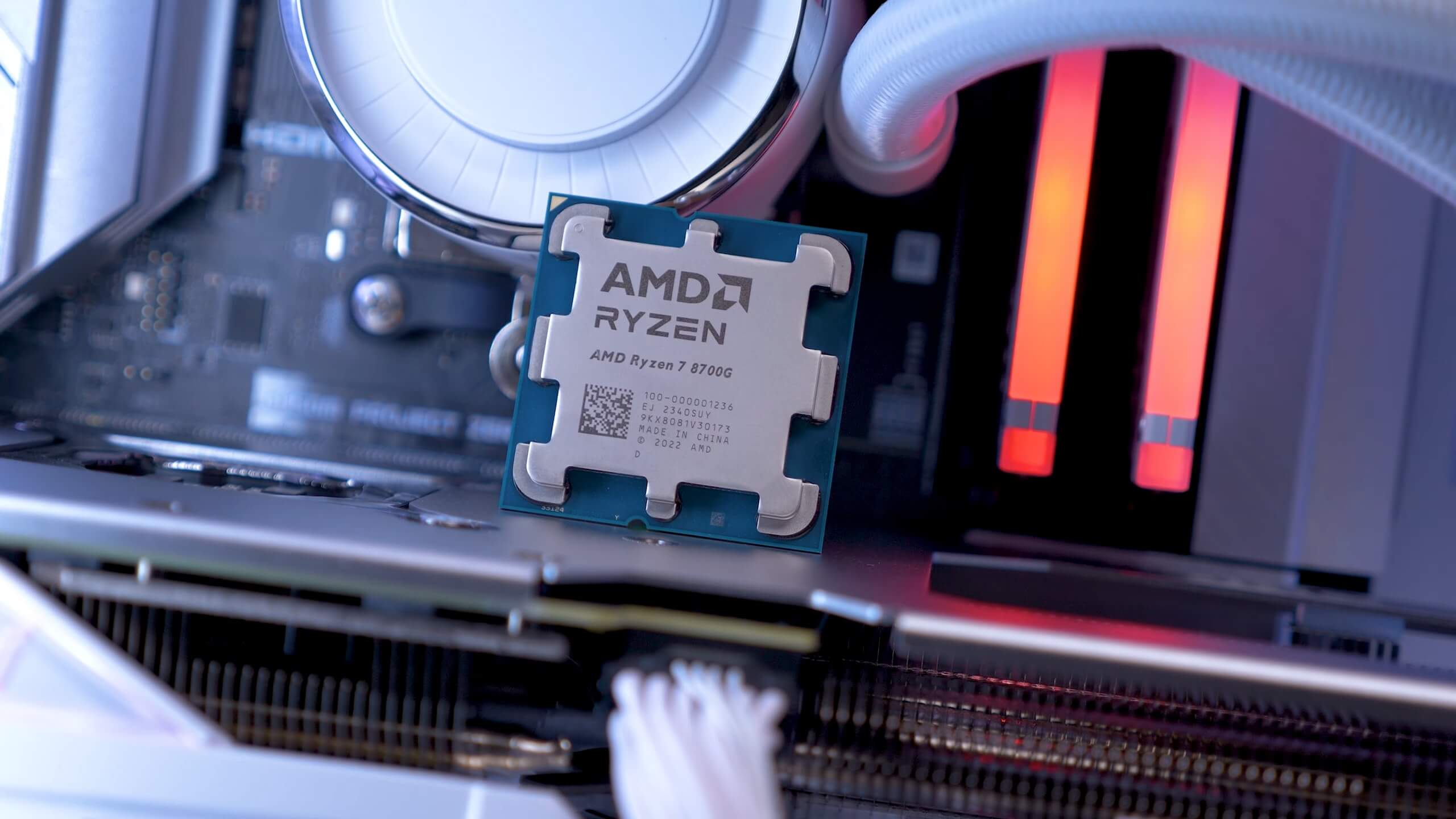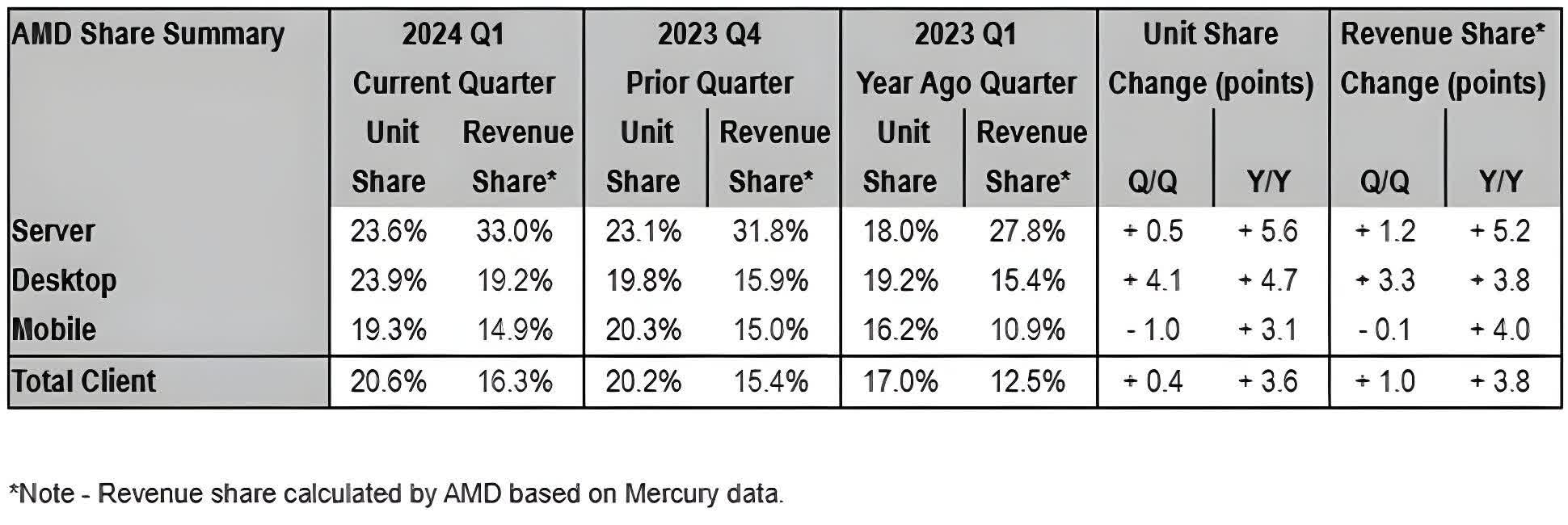In a nutshell: AMD managed to claw some market share away from Intel during the first quarter of the year as Team Red's client and server CPU sales increased, thanks to the popularity of the Ryzen 8000 processors and the latest Epyc chips. The one area where AMD saw a quarterly decline was laptops, though yearly sales did improve.
The latest figures from Mercury Research (via Tom's Hardware) show Q1 2024 was a good quarter for AMD as its unit and revenue share for server and desktop CPUs increased, both annually and sequentially.
AMD took a 23.9% unit share of the desktop market in the first quarter, up 4.1% QoQ and 4.7% YoY. Its revenue share also saw impressive gains, up to 3.3% quarterly/3.8% annually to reach 19.2%.
Increased demand for AMD's desktop CPUs, especially the Ryzen 8000-series, is also evident in the latest Steam survey. Valve's results show that AMD was up 2.24% against Intel last month, taking its user share to 33.46%.

AMD's server gains were even more impressive. The company has increased its unit share by 5.6% compared to last year (0.5% quarterly) to reach 23.6%. This area was also where AMD had its highest revenue share: 33%, up 5.2% YoY and 1.2% QoQ.
AMD says that its yearly increase in server CPU sales was driven by growth in enterprise adoption and expanded cloud deployments.
While AMD saw its yearly unit and revenue share grow in the laptops category (3.1% and 4%, respectively), this was the one area where it experienced a quarterly decline, albeit by just 0.1% in both cases. It's also AMD's smallest area when it comes to unit and revenue share, at 19.3% and 14.9%, respectively.
The yearly increase in laptop sales was partly thanks to Ryzen 8040 notebooks, according to AMD. The launch of Intel's Core Ultra Meteor Lake series likely led to its rival's sequential decline.
We recently heard rumors that AMD will use a new naming scheme for its Zen 5-based mobile CPUs. Following the industry craze for all things AI-related, the next-gen mobile processors could be called Ryzen AI 5, Ryzen AI 7, and Ryzen AI 9. Asus' upcoming VivoBook S16 laptops, for example, could be powered by the AMD Ryzen AI 9 HX 170.

